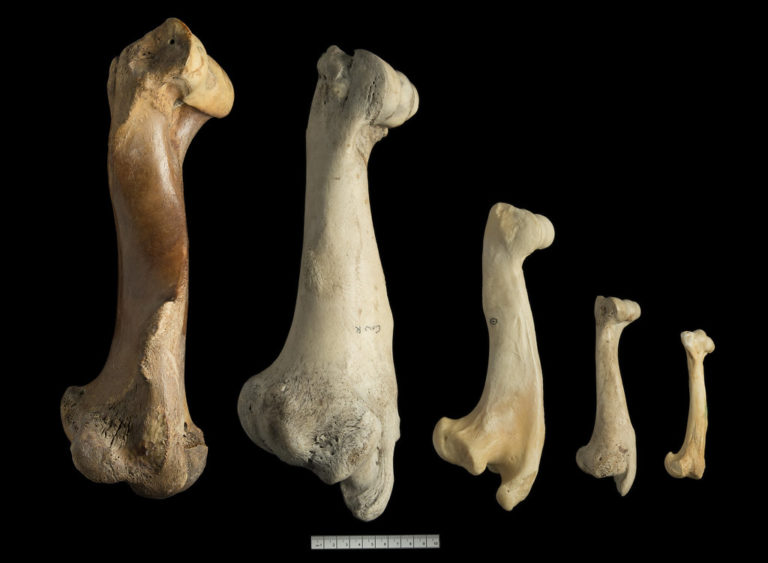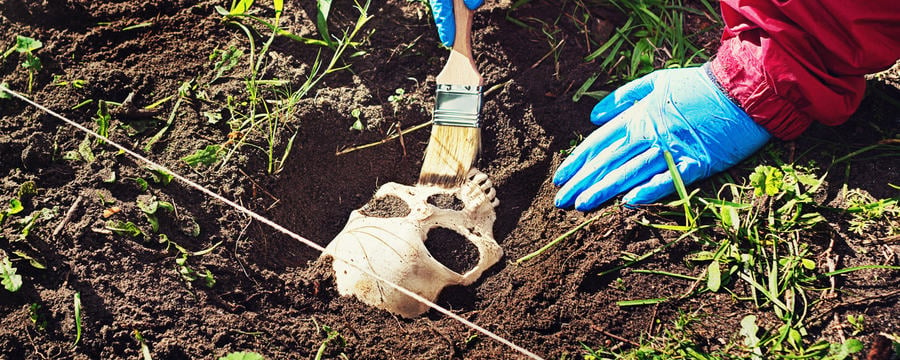Home / History / Archaeology / Forensic Archaeology and Anthropology / What does a forensic anthropologist do?

Reach your personal and professional goals
Unlock access to hundreds of expert online courses and degrees from top universities and educators to gain accredited qualifications and professional CV-building certificates.
Join over 18 million learners to launch, switch or build upon your career, all at your own pace, across a wide range of topic areas.


 Humeri (arm bones) from different species. From left to right these are horse, cow, sheep, pig, dog.
Humeri (arm bones) from different species. From left to right these are horse, cow, sheep, pig, dog.







